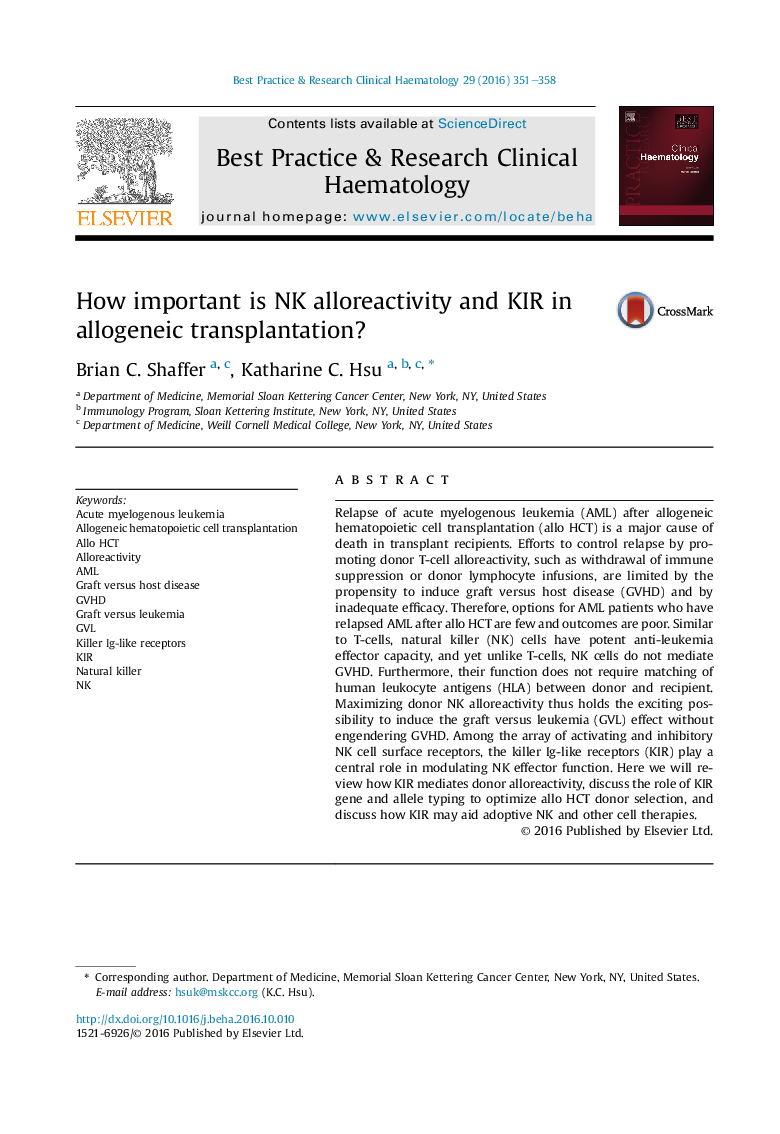| کد مقاله | کد نشریه | سال انتشار | مقاله انگلیسی | نسخه تمام متن |
|---|---|---|---|---|
| 5523894 | 1401396 | 2016 | 8 صفحه PDF | دانلود رایگان |

Relapse of acute myelogenous leukemia (AML) after allogeneic hematopoietic cell transplantation (allo HCT) is a major cause of death in transplant recipients. Efforts to control relapse by promoting donor T-cell alloreactivity, such as withdrawal of immune suppression or donor lymphocyte infusions, are limited by the propensity to induce graft versus host disease (GVHD) and by inadequate efficacy. Therefore, options for AML patients who have relapsed AML after allo HCT are few and outcomes are poor. Similar to T-cells, natural killer (NK) cells have potent anti-leukemia effector capacity, and yet unlike T-cells, NK cells do not mediate GVHD. Furthermore, their function does not require matching of human leukocyte antigens (HLA) between donor and recipient. Maximizing donor NK alloreactivity thus holds the exciting possibility to induce the graft versus leukemia (GVL) effect without engendering GVHD. Among the array of activating and inhibitory NK cell surface receptors, the killer Ig-like receptors (KIR) play a central role in modulating NK effector function. Here we will review how KIR mediates donor alloreactivity, discuss the role of KIR gene and allele typing to optimize allo HCT donor selection, and discuss how KIR may aid adoptive NK and other cell therapies.
Journal: Best Practice & Research Clinical Haematology - Volume 29, Issue 4, December 2016, Pages 351-358